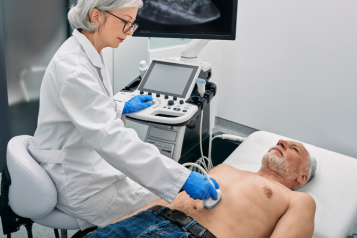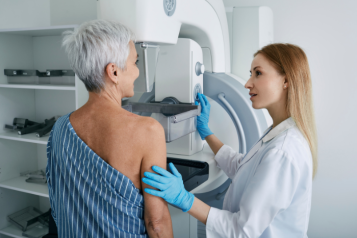Prostate Cancer Risk Programme Fact sheet Available

Our fact sheets are designed to give you quick access to the information you need around different types of screening.
Taken from the NHS website:
Prostate cancer affects the prostate gland under the bladder and usually happens to men over 50 years old. There are different treatments and it can often be cured if diagnosed early.
Main symptoms of prostate cancer
Prostate cancer often has no symptoms at first.
Prostate cancer usually starts to grow on the outer part of the prostate. This means it does not press on the tube that carries urine from the bladder to the penis (urethra) and cause symptoms, until the cancer has grown or spread.
If this happens, it can cause changes to the way you pee, such as:
- finding it difficult to start peeing or straining to pee
- having a weak flow of urine
- "stop start" peeing
- needing to pee urgently or often, or both
- feeling like you still need to pee when you've just finished
- peeing during the night
Other symptoms can include:
- erectile dysfunction (being unable to get or keep an erection)
- blood in your urine or blood in your semen
- lower back pain and losing weight without trying to (these may be symptoms of advanced prostate cancer)
Important:
These symptoms do not always mean you have prostate cancer. You can also get some of these symptoms if you have an enlarged prostate. This is a non-cancerous condition caused by the prostate getting larger as you get older.
But it's important to be checked by a GP if your symptoms change, get worse, or do not feel normal.
This is because if they're caused by cancer, finding it early means treatment is more likely to be successful.
Other Screening Fact Sheets Available
We have produced other fact sheets in this series; Abdominal Aortic Aneurysm, (AAA), Breast, Bowel, Cervical and Diabetic eye screening. All of which are published on our website.


